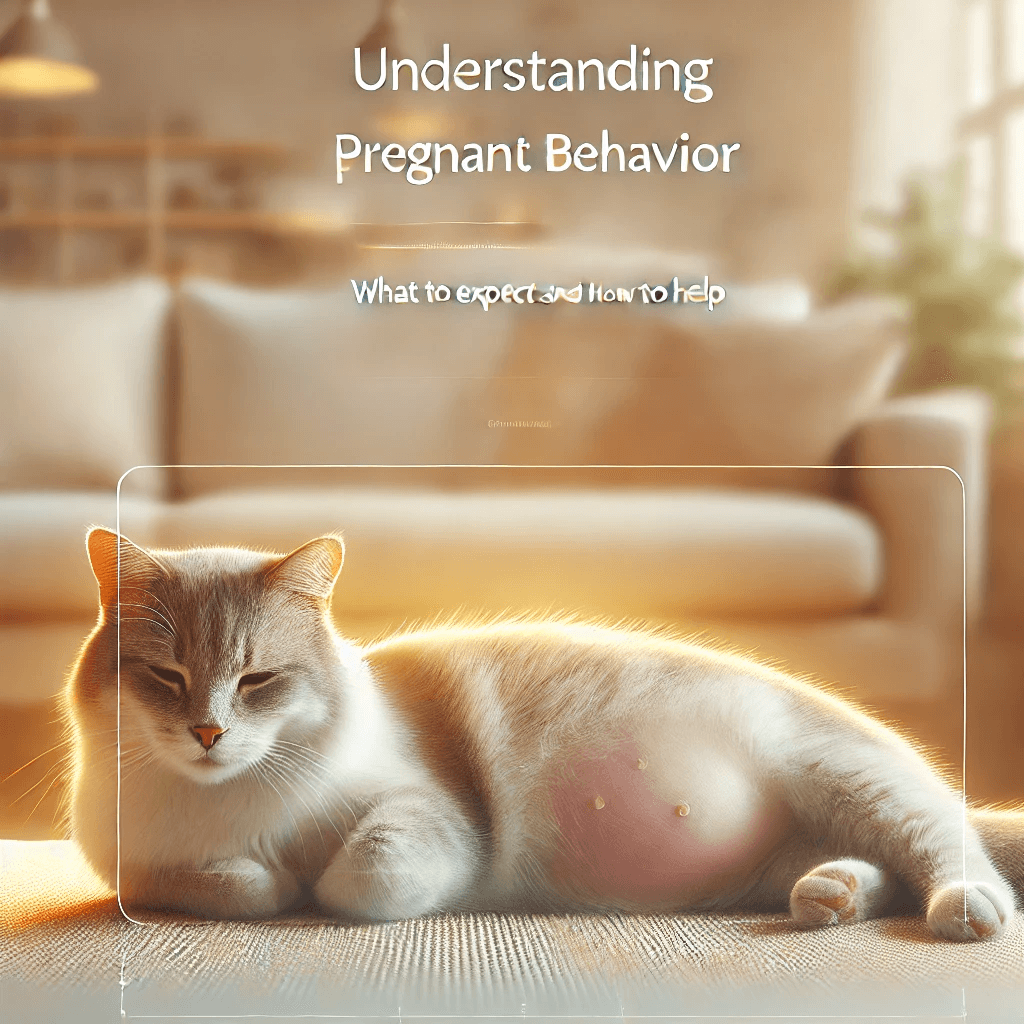Recognizing the Signs of a Pregnant Cat
Pregnancy in cats, also known as gestation, typically lasts around 63-67 days. During this time, a pregnant cat will exhibit physical and behavioral changes that indicate she is preparing for her kittens. Recognizing these signs can help you provide the support she needs during her pregnancy journey.
Early signs include increased appetite, affectionate behavior, and physical changes such as a rounded belly and enlarged nipples. As her pregnancy progresses, these behaviors and physical changes will become more pronounced.
Pregnant Cat Behavior: Changes to Expect

As a cat’s pregnancy advances, her behavior may change in several noticeable ways. These changes are instinctual and are aimed at preparing for the birth and care of her kittens. Here are some common behaviors to watch for:
- Nesting: Pregnant cats often seek out quiet, cozy areas to prepare a birthing space. You might find her curling up in secluded places or gathering soft items like blankets.
- Increased Appetite: To nourish her growing kittens, a pregnant cat may eat more than usual. Feeding her nutrient-dense food is essential during this time.
- Restlessness: As her due date approaches, she may become more restless, frequently changing positions or moving around.
- Increased Affection: Some cats become more affectionate during pregnancy, seeking attention from their owners more than usual.
- Vocalization: Pregnant cats may vocalize more as a way to communicate discomfort or seek attention, especially close to their due date.
How to Care for a Pregnant Cat
Caring for a pregnant cat involves providing a supportive environment and meeting her increased nutritional and comfort needs. Here are some tips to help:
- Provide Nutritional Support: Ensure she has access to high-quality, nutrient-dense cat food to support her and her kittens’ growth. Consult with a veterinarian about any dietary adjustments needed during this time.
- Create a Safe Space: Set up a quiet, comfortable nesting area with soft bedding where she can relax and eventually give birth.
- Limit Stress: Avoid making significant changes to her environment, and keep loud noises and disruptions to a minimum.
- Veterinary Care: Schedule a visit with a veterinarian to monitor her pregnancy and ensure that everything is progressing normally. Your vet can offer advice on preparing for the birthing process.

Preparing for the Arrival of Kittens
As your cat’s due date approaches, watch for signs that she is ready to give birth, such as excessive grooming, seeking isolation, or pacing around her nesting area. Having emergency vet contact information on hand is recommended if you encounter any issues during labor.
Remember to be gentle and avoid disturbing her during labor. Most cats handle delivery naturally, and she may prefer to be left alone as long as everything is going smoothly.
Conclusion: Understanding and Supporting Your Pregnant Cat
Pregnancy in cats can be an emotional and transformative experience for both the cat and the owner. By understanding common behaviors and providing her with a safe, nurturing environment, you can help ensure a smooth pregnancy and delivery. With the right care and attention, your cat will feel supported as she prepares to welcome her new litter.





